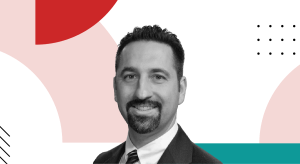For both the public and private sector, agility is starting to outweigh cost when it comes to cloud computing.
A new Harvard Business Review survey released Wednesday found that large and midsize organizations that have adopted cloud computing have seen an increase in business agility.
Seventy-four percent of the 527 people surveyed said their business has gained “some” to “significant” advantages thanks to cloud implementation. When asked how cloud allowed businesses to achieve those advantages, the respondents said cloud enhanced their responses to market changes, provided easier data accessibility and boosted collaboration between team members.
“None of these businesses were leading with, ‘We’ve saved money,'” said Angelia Herrin, a research director for Harvard Business Review. “Two or three years ago, people said, ‘If you just adopt cloud to do things cheaper and faster, you’re going to miss out. Someone is going to eat your lunch.’ I think this report points out that people are beginning to get that, and the power users and [cloud] enthusiasts get that.”
Helen Donnelly, the cloud marketing director for Verizon (a co-sponsor of the survey), said the survey shows some “interesting parallels” to the way the public sector is integrating its own cloud computing services.
“I think this shift toward not just looking at cloud as a race-to-the-bottom commodity cost saver but more as an enabler of agility is relevant to the public sector,” Donnelly said.
Donnelly said there can be a “meeting of the minds” as to how the public and private sector can learn from each other’s cloud integration.
“There are certain aspects of cloud adoption and standards with respect to process and methodology that the private sector could do well to learn from the public sector,” Donnelly said.
One aspect of cloud computing where the public and private sector differ is security. In the study, 65 percent of respondents said cloud has either increased security or had a neutral impact.
“Security is notably absent as a consideration for concerns about the cloud,” Donnelly said. “Businesses are turning a blind eye to IT as an enabler, saying, ‘I don’t have to worry about that and can use my credit card and go buy the cores I need and I’m good.'”
Donnelly said the government’s approach to cloud security has been “a little more pragmatic,” pointing to the Defense Information Systems Agency as an example.
“They talk about this catalog of standardized services and architectures to leverage the cloud but also effectively standardize the approach to [how] this capability is going to be delivered to [other] defense agencies,” she said.
Companies who consider themselves “enthusiasts” of cloud computing are also tinkering with a hybrid of public and private cloud use. Cloud enthusiasts were almost split between fully-private and hybrid cloud use (40 percent to 39 percent, respectively) while those who were cautious about cloud tend to stick to private models.
Donnelly said while the public sector would need to work out the kinks before integrating a hybrid model, she sees room for it.
“Hybrid cloud is a great concept, but how you securely share and connect those clouds together is really fundamental to how this is going to work,” she said. “There’s definitely the large majority moving towards private cloud, but I think when you look at the development of tech life cycle, of how applications get built, some of the front end pieces [can] easily be done in public cloud.”
You can access the full Harvard Business Review report on Verizon’s website.




